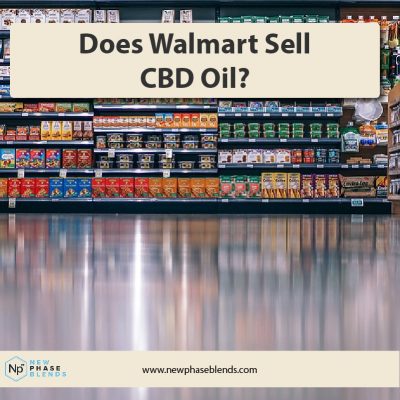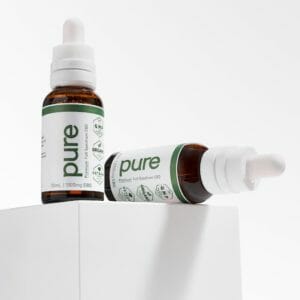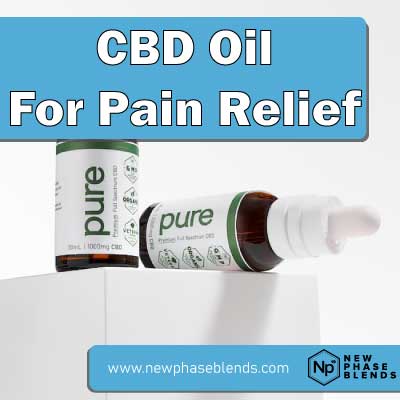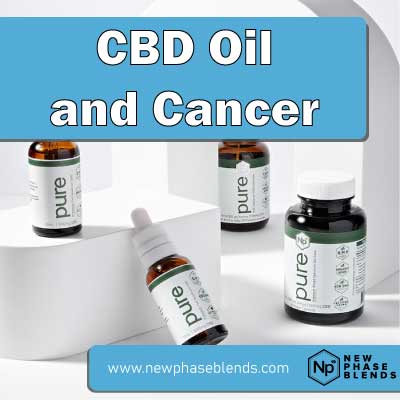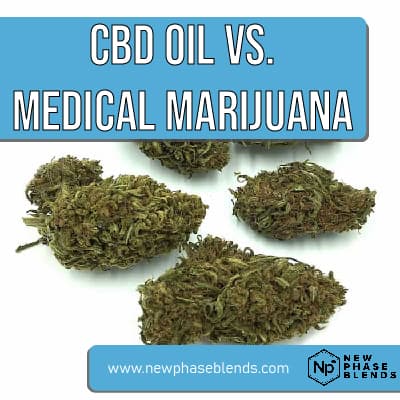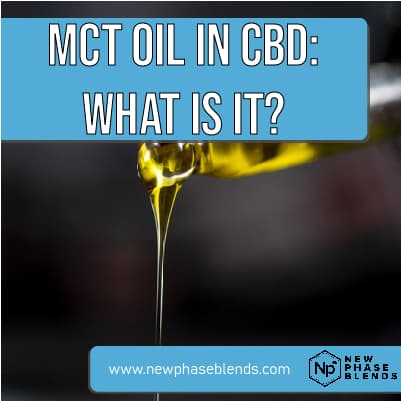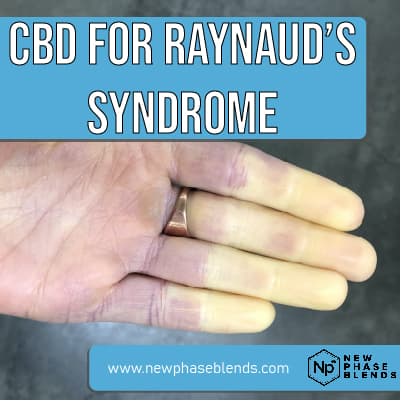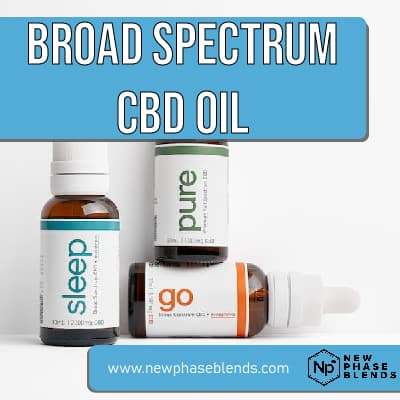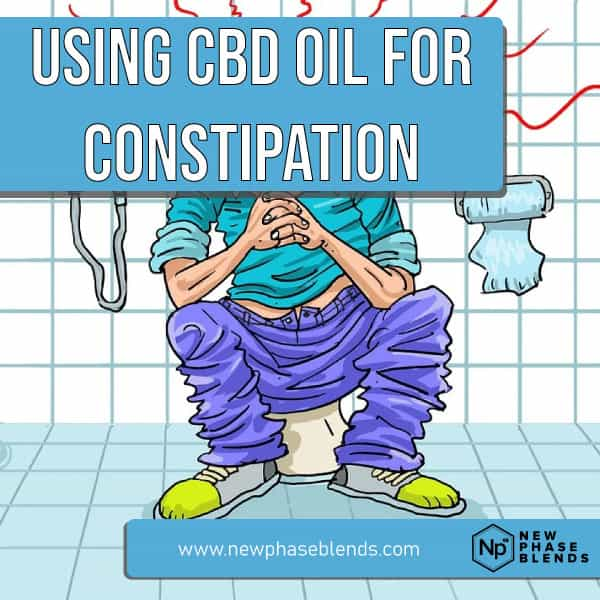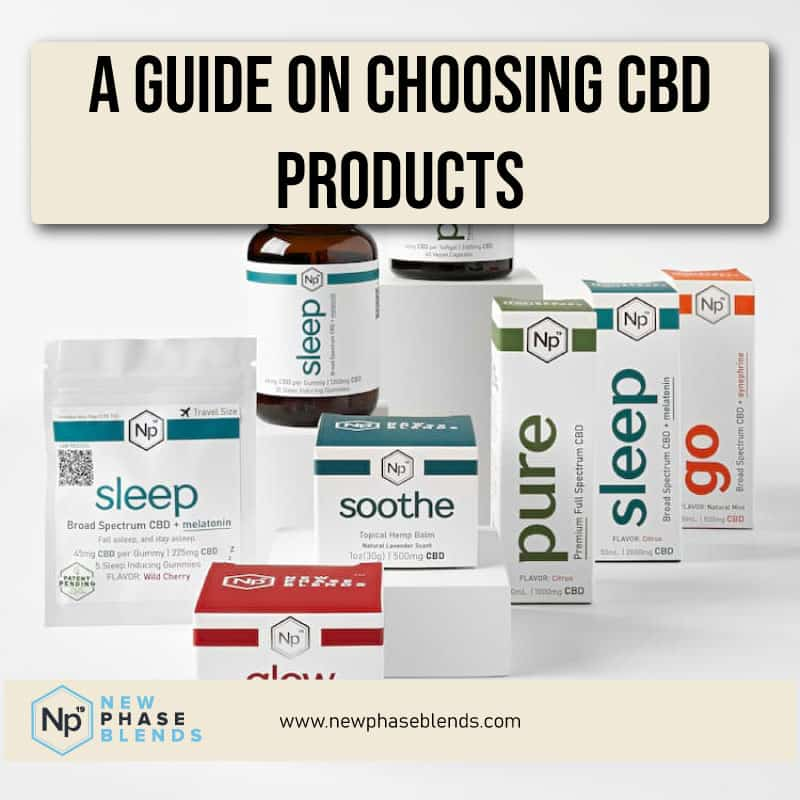If you’re searching for CBD products at mainstream retailers, you’ve likely wondered, “Does Walmart sell CBD oil?” or “Can I find CBD products at Walmart?” As CBD continues to rise in popularity for its potential wellness benefits, finding convenient, trustworthy sources becomes increasingly important. This comprehensive guide by New Phase Blends examines Walmart’s current stance on CBD products, explains important distinctions between genuine CBD and similar-sounding alternatives, explores the regulatory landscape, and provides valuable guidance for finding quality CBD products, whether or not they’re available at your local Walmart.
Key Takeaways
- Walmart does not currently sell authentic CBD oil in stores or online, only hemp seed oil products
- Hemp seed oil and CBD oil are fundamentally different products with different benefits
- The 2018 Farm Bill legalized hemp-derived CBD products containing less than 0.3% THC
- Despite CBD’s legality, major retailers like Walmart remain cautious about selling CBD products
- Alternative retailers and specialized online stores offer legitimate CBD products
The Short Answer: Does Walmart Sell CBD Oil?
As of February 2025, Walmart does not sell CBD oil or any products containing cannabidiol in their stores or through their online marketplace. While Walmart does sell hemp seed oil and various hemp-derived products, these do not contain CBD and offer different properties and benefits than CBD products.
This position applies to all Walmart locations across the United States, regardless of state laws regarding CBD. Despite the federal legalization of hemp-derived CBD containing less than 0.3% THC through the 2018 Farm Bill, Walmart has maintained a cautious approach to CBD products.
Walmart’s position reflects the ongoing regulatory complexity surrounding CBD products. While the market is growing rapidly, major retailers are waiting for clearer FDA guidelines before making significant investments in this category.
Understanding CBD: What It Is and Why People Use It
Cannabidiol, commonly known as CBD, is one of over 100 cannabinoids found in cannabis plants. Unlike its more famous cousin THC (tetrahydrocannabinol), CBD doesn’t produce intoxicating effects or make users feel “high.”
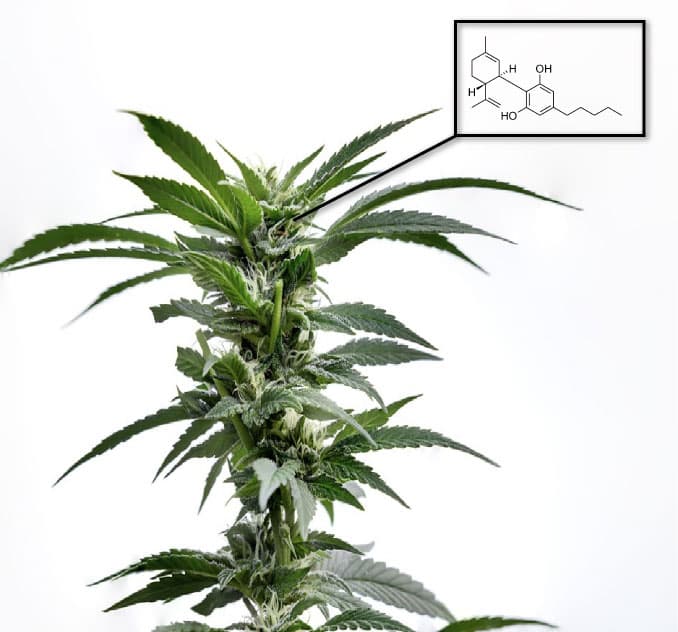
CBD is primarily extracted from hemp, a variety of the Cannabis sativa plant specially grown to contain high levels of CBD and minimal THC (legally defined as less than 0.3% THC by dry weight). This distinction is crucial, as it’s what makes hemp-derived CBD federally legal, unlike marijuana-derived products.
How CBD Works in the Body
CBD interacts with the body’s endocannabinoid system (ECS), a complex network of receptors and neurotransmitters that helps regulate numerous physiological functions including mood, sleep, pain perception, immune response, and more. Rather than binding directly to cannabinoid receptors, CBD appears to work indirectly by influencing how other compounds interact with these receptors and by affecting non-cannabinoid receptors and ion channels.
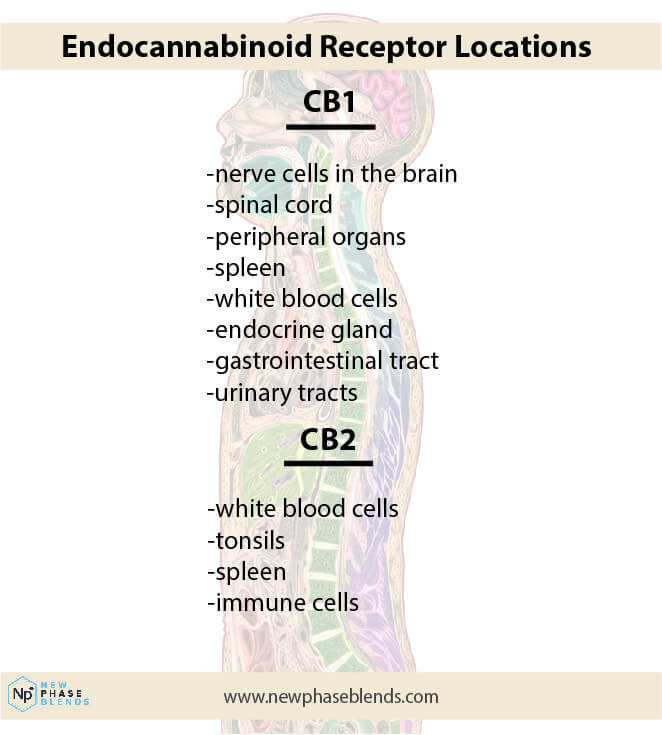
The endocannabinoid system is essentially a homeostatic regulator, helping maintain balance across multiple bodily systems. CBD appears to support this function, which may explain its wide range of potential therapeutic applications.
Common Reasons People Use CBD
According to a comprehensive 2024 survey by the National Institutes of Health, the most common reasons people report using CBD include:
- Managing anxiety and stress (62%)
- Addressing chronic pain (58%)
- Improving sleep quality (45%)
- Supporting overall wellness (38%)
- Helping with inflammation (34%)
- Addressing specific health conditions (29%)
The CBD market has grown exponentially, reaching $9.5 billion in U.S. sales for 2024 according to Brightfield Group research, with projections to exceed $18 billion by 2027. This growth reflects increasing consumer interest and emerging research supporting some of CBD’s potential benefits.
Hemp Seed Oil vs. CBD Oil: Critical Differences
One of the most common sources of confusion for consumers is the distinction between hemp seed oil and CBD oil. This confusion is sometimes deliberately exploited by marketers using misleading terminology.
Hemp Seed Oil: What It Is
Hemp seed oil is pressed from the seeds of hemp plants and contains:
- Nutritious omega-3 and omega-6 fatty acids
- Vitamin E and other antioxidants
- Protein and fiber
- No significant cannabinoids, including CBD
Hemp seed oil is primarily valued for its nutritional profile and is commonly used in cooking, skincare products, and as a dietary supplement for its healthy fat content.
CBD Oil: The Real Deal
CBD oil, by contrast, is extracted from the flowers, leaves, and stalks of hemp plants—not the seeds. Real, pure CBD oil contains:
- Cannabidiol (CBD) in varying concentrations
- Potentially other cannabinoids like CBG, CBN, and trace amounts of THC (less than 0.3%)
- Terpenes and flavonoids that contribute to the “entourage effect”
- A carrier oil like MCT oil, olive oil, or hemp seed oil
The production processes for these oils are entirely different. CBD extraction typically involves sophisticated methods like CO2 extraction or ethanol processing to preserve the cannabinoid profile, while hemp seed oil is simply cold-pressed from seeds, much like olive oil.
Why the Distinction Matters
This difference is critically important because hemp seed oil does not provide the same potential therapeutic benefits as CBD oil. When retailers like Walmart sell “hemp extract” or “hemp oil,” they’re almost always referring to hemp seed oil, not CBD.
Recent market research indicates that a significant percentage of consumers struggle to correctly identify the difference between hemp seed oil and CBD oil products based on packaging and marketing. This confusion leads many people to purchase hemp seed products expecting CBD benefits, only to be disappointed with the results.
What Hemp Products Does Walmart Actually Sell?
While Walmart doesn’t carry CBD products, they do offer several hemp-derived items that might be confused with CBD products by uninformed consumers.
Hemp Products Available at Walmart
- Hemp seed oil: Sold as a nutritional supplement or cooking oil, typically in the health food or cooking oil sections. Common brands include Manitoba Harvest and Nutiva.
- Hemp-based skincare products: Various lotions and creams that incorporate hemp seed oil for its moisturizing properties and fatty acid content.
- Hemp protein powder: Plant-based protein supplements derived from hemp seeds, marketed toward health-conscious consumers and vegetarians.
- Hemp clothing and textiles: Items made from hemp fibers, which are known for durability and sustainability.
- Hemp food products: Including hemp seeds, hemp hearts, and other edible hemp-based items.
Misleading Marketing Language By Walmart to Watch For
When shopping at Walmart or similar retailers, be cautious of products using terminology designed to suggest CBD content without explicitly claiming it. Misleading terms often include:
- “Hemp extract” (often just hemp seed oil)
- “Cannabis sativa seed oil” (botanical name for hemp seed oil)
- “Hemp oil” (typically hemp seed oil, not CBD oil)
- “Hemp-infused” (may contain hemp seed oil, not CBD)
Consumer protection advocates suggest these terms exploit the knowledge gap most consumers have about the difference between hemp seed products and CBD. While not technically false advertising, they can create confusion and associations with CBD in consumers’ minds.
A thorough examination of Walmart’s product descriptions and ingredient lists reveals that none of their hemp products contain cannabidiol. If you’re specifically seeking CBD, you’ll need to look beyond Walmart’s offerings.
Why Major Retailers Like Walmart Are Cautious About CBD
Despite the growing popularity of CBD and its federal legality under specific conditions, major retailers like Walmart have remained hesitant to stock these products. Several factors contribute to this caution.
Regulatory Uncertainty of CBD
The FDA has yet to establish clear regulations for CBD as a dietary supplement or food additive. While the 2018 Farm Bill removed hemp from the Controlled Substances Act, it preserved the FDA’s authority to regulate products containing cannabis compounds.
Current FDA positions include:
- CBD cannot be marketed as a dietary supplement under existing regulations
- CBD cannot be added to food products crossing state lines
- No official safety guidelines exist for CBD product manufacturing
- Only one CBD product (Epidiolex) has received FDA approval for specific medical uses
For national chains operating in all 50 states, regulatory clarity is essential. Without consistent FDA guidance, selling CBD creates compliance risks that many major retailers simply aren’t willing to take.
Banking and Insurance Complexities
Businesses selling CBD products face unique financial challenges:
- Some financial institutions remain reluctant to service CBD businesses
- Payment processing can be more complicated and expensive
- Insurance rates may be higher for businesses selling CBD
- Additional accounting and compliance requirements add operational costs
These financial complexities create barriers that make CBD products less attractive for major retailers compared to other product categories with established regulatory and financial frameworks.
Brand and Reputation Concerns
For established retailers like Walmart, maintaining consumer trust is paramount. Without clear quality standards and regulatory oversight, CBD products present potential reputation risks.
Major retailers like Walmart have spent decades building consumer trust. Industry observers note they appear reluctant to stake that reputation on products in a developing category with variable quality standards and evolving regulations.
Internal documents revealed through industry reporting suggest that Walmart and similar retailers are actively developing CBD strategies but waiting for regulatory clarity before implementation.
CBD’s Legal Status: Federal and State Considerations
Understanding the legal landscape for CBD helps explain the cautious approach taken by major retailers like Walmart.
The 2018 Farm Bill: A Turning Point
The Agricultural Improvement Act of 2018 (commonly known as the Farm Bill) was transformative for the hemp industry, as it:
- Removed hemp from the DEA’s list of controlled substances
- Defined hemp as cannabis plants containing less than 0.3% THC
- Legalized the production and sale of hemp and hemp derivatives at the federal level
- Transferred regulatory authority from the DEA to the USDA for hemp cultivation
This legislation created the foundation for legal CBD products derived from hemp, provided they contain no more than 0.3% THC. However, it explicitly preserved FDA authority over cannabis products, creating the regulatory uncertainty that persists today.
State-by-State Variation
While hemp-derived CBD is federally legal, state laws vary significantly:
- Some states have fully embraced CBD with minimal restrictions
- Others have implemented licensing requirements for retailers
- A few states maintain restrictions on certain types of CBD products
- Local jurisdictions may have additional regulations
For a national retailer like Walmart operating in all 50 states, these variations create compliance challenges. Rather than developing state-specific inventory systems, most major retailers have opted to avoid CBD products entirely until regulations become more uniform.
FDA Developments and Future Outlook
Recent FDA actions suggest movement toward clearer regulations. In late 2023, the FDA announced it was developing a regulatory framework for CBD products, acknowledging the need for safety standards and quality requirements.
The FDA appears to be under increasing pressure from Congress and industry to provide regulatory clarity. There’s growing recognition that the current situation serves neither consumers nor businesses well, and industry analysts anticipate meaningful regulatory developments may emerge in the next 12-18 months.
These pending regulatory developments will likely determine when and if major retailers like Walmart begin carrying CBD products.
Where to Find Legitimate CBD Products
With Walmart not currently offering CBD products, consumers have several alternative sources for purchasing quality CBD.
Specialty CBD Retailers
Dedicated CBD shops provide advantages including:
- Staff with specialized knowledge about CBD products
- Wide selection of formulations and strengths
- Access to certificates of analysis and test results
- Personalized recommendations based on individual needs
These specialty retailers typically have higher prices than mass-market stores but offer expertise and product selection that compensate for the premium.
Pharmacy Chains
Some national pharmacy chains have begun carrying select CBD products:
- CVS offers topical CBD products in select states
- Walgreens stocks CBD creams and patches in certain locations
- Rite Aid has piloted CBD product lines in specific markets
These pharmacy chains typically focus on topical CBD products rather than ingestible forms like oils and gummies, reflecting their more conservative approach to regulatory considerations.
Health and Natural Food Stores
Independent and chain health food stores frequently stock CBD products:
- Whole Foods Market carries topical CBD products in some locations
- Sprouts Farmers Market offers various CBD formulations
- Local health food stores often have curated CBD selections
These retailers typically emphasize organic, natural CBD products and may provide educational materials about CBD use and benefits.
Reputable Online Retailers
The online marketplace offers the widest selection of CBD products, though quality varies significantly. Trustworthy online CBD retailers provide:
- Comprehensive product information and ingredient transparency
- Third-party testing results for all products
- Clear dosage instructions and usage guidelines
- Customer support for product questions
- Educational resources about CBD
Industry research indicates that approximately 70% of CBD purchases occur online, making this the dominant retail channel for CBD products currently.
How to Identify High-Quality CBD Products
Whether shopping online or in specialty stores, these guidelines will help ensure you’re getting legitimate, effective CBD products.
Essential Quality Indicators
- Third-party laboratory testing: Reputable CBD companies provide Certificates of Analysis (COAs) from independent labs verifying:
- CBD content matches label claims
- THC levels fall below the legal limit of 0.3%
- Product is free from contaminants like pesticides, heavy metals, and solvents
- Clear potency information: Quality products specify the exact CBD content in milligrams, both per container and per serving, allowing for precise dosing.
- Extraction method: Premium products typically use CO2 extraction or ethanol extraction, which preserve cannabinoid integrity while removing unwanted compounds.
- Hemp sourcing: Leading brands use domestically-grown hemp from licensed farms that follow organic or sustainable practices and comply with strict agricultural regulations.
- Full ingredient transparency: All ingredients should be clearly listed, including the type of carrier oil used and any additional active ingredients.
Understanding CBD Product Types
CBD products come in several formats, each with unique characteristics:
- Full-spectrum CBD: Contains all naturally occurring compounds from the hemp plant, including trace amounts of THC (less than 0.3%)
- Broad-spectrum CBD: Contains multiple cannabinoids and terpenes but with THC removed
- CBD isolate: Contains only pure CBD with all other compounds removed
Research suggests that for many users, full-spectrum products offer enhanced benefits due to the ‘entourage effect’—the synergistic interaction between multiple cannabis compounds. However, those concerned about THC exposure may prefer broad-spectrum or isolate products.
Red Flags and Warning Signs
Avoid products with these concerning characteristics:
- Medical claims about curing or treating specific diseases
- No clear indication of CBD content in milligrams
- Missing or incomplete ingredient information
- No access to third-party testing results
- Significantly lower pricing than market averages
- QR codes that lead to generic websites rather than specific test results
Consumer advocacy groups report that up to 30% of CBD products contain significantly less CBD than advertised or contain contaminants, highlighting the importance of careful product selection.
Will Walmart Sell CBD Products in the Future?
Industry experts widely believe that Walmart and other major retailers are preparing for eventual CBD sales once regulatory clarity improves.
Signs of Preparation
Several indicators suggest Walmart is developing a CBD strategy:
- Meetings between Walmart executives and CBD product manufacturers have been reported by industry insiders
- The company has been monitoring CBD sales performance in pharmacy chains
- Internal working groups focused on hemp and CBD product opportunities have been established
- Market research on consumer CBD preferences has been commissioned
Industry analysis suggests that major retailers don’t want to be left behind in what projects to be a multi-billion dollar category. There are indications they’re doing the groundwork now so they can move quickly once regulations clarify.
Conditions for Mainstream CBD Retail
For Walmart to begin selling CBD products, several developments would likely be necessary:
- Clear FDA regulations: Established guidelines for CBD as a dietary supplement or food additive
- Standardized testing requirements: Consistent quality and potency standards across the industry
- Major competitor adoption: Successful implementation by other national retailers
- Banking normalization: Reduced financial barriers for CBD commerce
- Liability protection: Clearer legal frameworks reducing retailer exposure
When Will Walmart Start Selling Real CBD?
Industry analysts offer varying predictions on when Walmart might begin CBD sales:
- Conservative estimates suggest 2-3 years, pending FDA regulatory framework
- More aggressive projections indicate possible limited CBD offerings within 12-18 months
- Most likely initial products would be topical applications rather than ingestibles
When major retailers like Walmart eventually enter the CBD market, industry trends suggest they’ll likely do so with a carefully curated selection of products from established brands with impeccable testing protocols and compliance records. They’ll likely expand offerings gradually as they gauge consumer response and regulatory developments.
The entry of major retailers like Walmart would likely transform the CBD market through increased competition, price pressures, and greater consumer access.
Frequently Asked Questions
Does Walmart sell any CBD oil products in 2025?
No, as of February 2025, Walmart does not sell CBD oil or any products containing cannabidiol, either in physical stores or through their online marketplace. The hemp products they carry are derived from hemp seeds and do not contain CBD.
What types of hemp products does Walmart sell?
Walmart sells hemp seed oil, hemp-based skincare products, hemp protein powder, hemp clothing and textiles, and hemp food products. None of these contain CBD or offer the potential therapeutic benefits associated with CBD products.
How can I tell if a product at Walmart contains real CBD?
Currently, no products at Walmart contain CBD. Products labeled as “hemp oil,” “hemp extract,” or “cannabis sativa seed oil” at Walmart are hemp seed oil products, which do not contain cannabidiol. Always check the ingredient list for “cannabidiol” or “CBD” specifically, which you won’t find in Walmart products.
Why doesn’t Walmart sell CBD despite its legality?
Despite the 2018 Farm Bill legalizing hemp-derived CBD federally, Walmart and other major retailers remain cautious due to ongoing regulatory uncertainty from the FDA, varying state regulations, financial and banking complications specific to CBD businesses, and potential brand reputation concerns.
Is hemp seed oil from Walmart effective for the same purposes as CBD?
No, hemp seed oil and CBD oil are fundamentally different products with different applications. Hemp seed oil is nutritious and contains beneficial fatty acids, but it does not interact with the endocannabinoid system or provide the potential therapeutic effects associated with CBD.
Where can I buy legitimate CBD products if not at Walmart?
Legitimate CBD products can be purchased from specialty CBD retailers, select pharmacy chains like CVS and Walgreens (in certain states), health food stores like Whole Foods and Sprouts, and reputable online CBD retailers that provide third-party testing results.
Will Walmart sell CBD products in the future?
Industry experts believe Walmart is likely to enter the CBD market once there is greater regulatory clarity from the FDA and more standardized quality control across the industry. Internal company preparations suggest they are developing a CBD strategy for future implementation.
Can I order CBD products through Walmart’s online marketplace?
No, Walmart’s online marketplace does not currently allow third-party sellers to list CBD products. All hemp products available through Walmart online are hemp seed-based and do not contain CBD.
Are Walmart’s hemp products beneficial for health?
Hemp seed products sold at Walmart, such as hemp seed oil and hemp protein, do have nutritional benefits including healthy omega fatty acids, protein, and fiber. However, they do not provide the specific potential therapeutic effects associated with CBD products.
What should I look for when buying CBD elsewhere?
When purchasing CBD, look for products with comprehensive third-party testing results, clear potency information (in milligrams of CBD), transparent ingredient lists, information about the extraction method used, and details about hemp sourcing. Avoid products making medical claims or lacking laboratory verification.
Conclusion: Navigating the CBD Landscape Beyond Walmart
While Walmart does not currently sell CBD oil or other CBD products, consumers have numerous options for finding quality CBD from reputable sources. The distinction between hemp seed oil (which Walmart does sell) and CBD oil is crucial to understand when shopping for these products.
As the regulatory landscape continues to evolve, major retailers like Walmart are likely to enter the CBD market, potentially transforming accessibility and pricing for consumers. Until then, specialized retailers, pharmacy chains, and trusted online stores remain the primary sources for CBD products.
For those interested in exploring CBD’s potential benefits, focusing on product quality rather than purchasing convenience will yield better results. By understanding what to look for in legitimate CBD products and recognizing misleading marketing terminology, consumers can make informed decisions regardless of where they shop.
The future of CBD retail appears to be heading toward mainstream availability, but for now, knowing where and how to shop for these products outside of major retailers like Walmart remains essential knowledge for CBD consumers.



